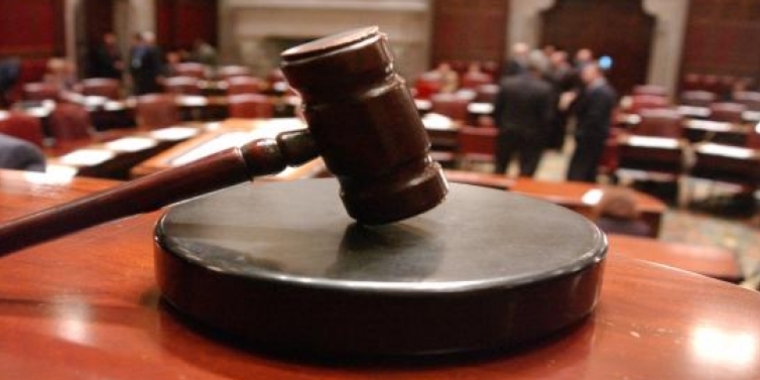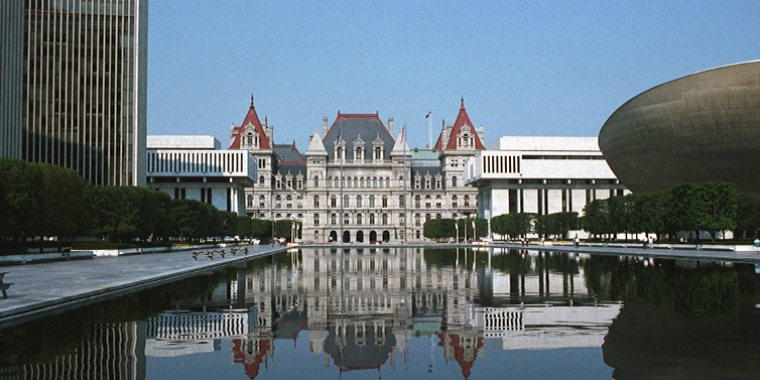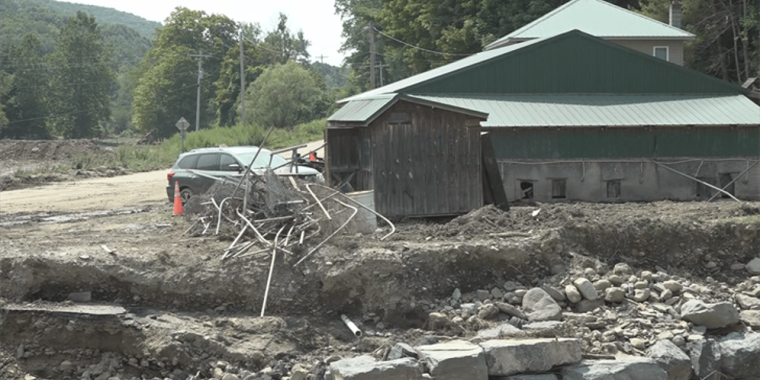
Senator O’Mara’s weekly column ‘From the Capitol’ ~ for the week of February 21, 2022 ~ 'Time to scrap a state tax preventing rural broadband’
February 23, 2022
-
ISSUE:
- Broadband Access

Senator O'Mara offers his weekly perspective on many of the key challenges and issues facing the Legislature, as well as on legislative actions, local initiatives, state programs and policies, and more. Stop back every Monday for Senator O'Mara's latest column...
This week, "Time to scrap a state tax preventing rural broadband"
Access to high-speed Internet has become a fundamental need for families, businesses, farms, local economies, first responders, schools, and the overall success and strength of local communities -- and that’s especially true in many rural, upstate communities.
It’s a priority that has long been long identified and pursued in the Legislature, and a challenge that I have long advocated for and worked towards addressing. In 2015, for example, area Assemblyman Phil Palmesano and I sponsored a new law (Chapter 480 of the Laws of 2015) that, for the first time, included “installation and infrastructure of broadband services” as a specific project category eligible to receive funding through the Library Construction Grant Program. Prior to the law’s enactment, libraries were unable to access funding through this popular grant program specifically for broadband purposes including cable, wiring and modems, and network terminals and access points.
Needless to say, if you didn’t understand the fundamental importance of broadband development for public libraries and the communities they serve, you know it now. Over the past two years of the COVID-19 response, the Southern Tier and Finger Lakes public library systems have been absolute lifelines of online access and public outreach. Of course, that’s been true across-the-board in many ways and many places throughout this pandemic. This public health crisis has magnified the importance of the broadband challenge and the need for action as libraries and schools, local governments and organizations, hospitals and health care professionals, and communities at large, in countless ways, have turned to online discussions, meetings, programs and services to remain together and to carry out the necessary public outreach and response.
In the fall of 2019, prior to the onset of the coronavirus pandemic, the Legislature’s Commission on the Development of Rural Resources co-sponsored a joint Senate-Assembly hearing on broadband development. The hearing drew legislators representing rural regions across upstate New York to the Legislative Office Building in Albany to hear testimony from rural broadband stakeholders representing individual communities, businesses and industries, family farms, government agencies, schools and public libraries, health care providers, emergency services, law enforcement, and many others. It highlighted the fundamental importance of this challenge.
Following the 2019 hearing, I said, “This hearing will serve to refocus the Legislature’s attention and I look forward to working with my colleagues to get this job done. There are some incredible local efforts underway making great strides to expand and improve our regional access. Ongoing state investment can help accelerate these badly needed expansions and truly ensure broadband development across rural, upstate New York.”
It remains the case to this day. We have worked to ensure that rural, upstate New York not be left behind in this mission to bring effective broadband to all New Yorkers, but new initiatives and investments are needed. While state government has made important strides through the New NY Broadband Program and other past initiatives to bring high-speed broadband to rural areas, more (and broader and more urgent) steps will now need to be taken to accelerate this development. It must remain one of New York government’s highest priories, even more so now given the likelihood of an increased reliance on remote employment and learning across our post-COVID landscapes.
At the moment, the single most important action that the state can immediately take is to repeal what’s commonly known as the “fiber-optic tax.” It’s an action that several of my Senate Republican colleagues and I recently highlighted once again at a Capitol news conference. In short, it’s an onerous and highly damaging fee -- tucked into the state budget in 2019 by then-Governor Cuomo and the Democrat legislative majorities -- for accessing state rights-of-way to lay fiber optic cables. This fiber tax only applies to broadband providers and it has stood as a serious obstacle to broadband development and expansion, especially in rural, upstate communities.
In fact, it’s been a glaring mistake. How counterproductive is this state fee? Consider only the fact that the roughly $8 million in state revenue being generated by the fiber tax is holding up billions of dollars in broadband deployment projects throughout the state, including in many rural communities.
In March 2020, Yates County in my legislative district became the first municipality in New York State and one of the first in the nation to receive a grant from the United States Department of Agriculture’s (USDA) Rural Utilities Service (RUS) to construct a gigabit capable fiber optic broadband network to reach unserved and underserved areas of the county. In the subsequent mapping of the Yates County ReConnect Project, the designers ran up against New York’s fiber tax and were forced to avoid and work around the higher costs that would be required to access areas along state roadways, thereby cutting off the residences and other premises along these routes!
It’s ridiculous and, again, counterproductive to the overriding goal and mission.
Governor Hochul should give this repeal the urgency it demands to ensure that broadband development across rural, upstate New York receives an equal and fair commitment. It’s clear that the state’s costly fiber tax hinders badly needed efforts to expand broadband access and close the digital divide in rural communities.
It’s time to get rid of it.
Share this Article or Press Release
Newsroom
Go to Newsroom


